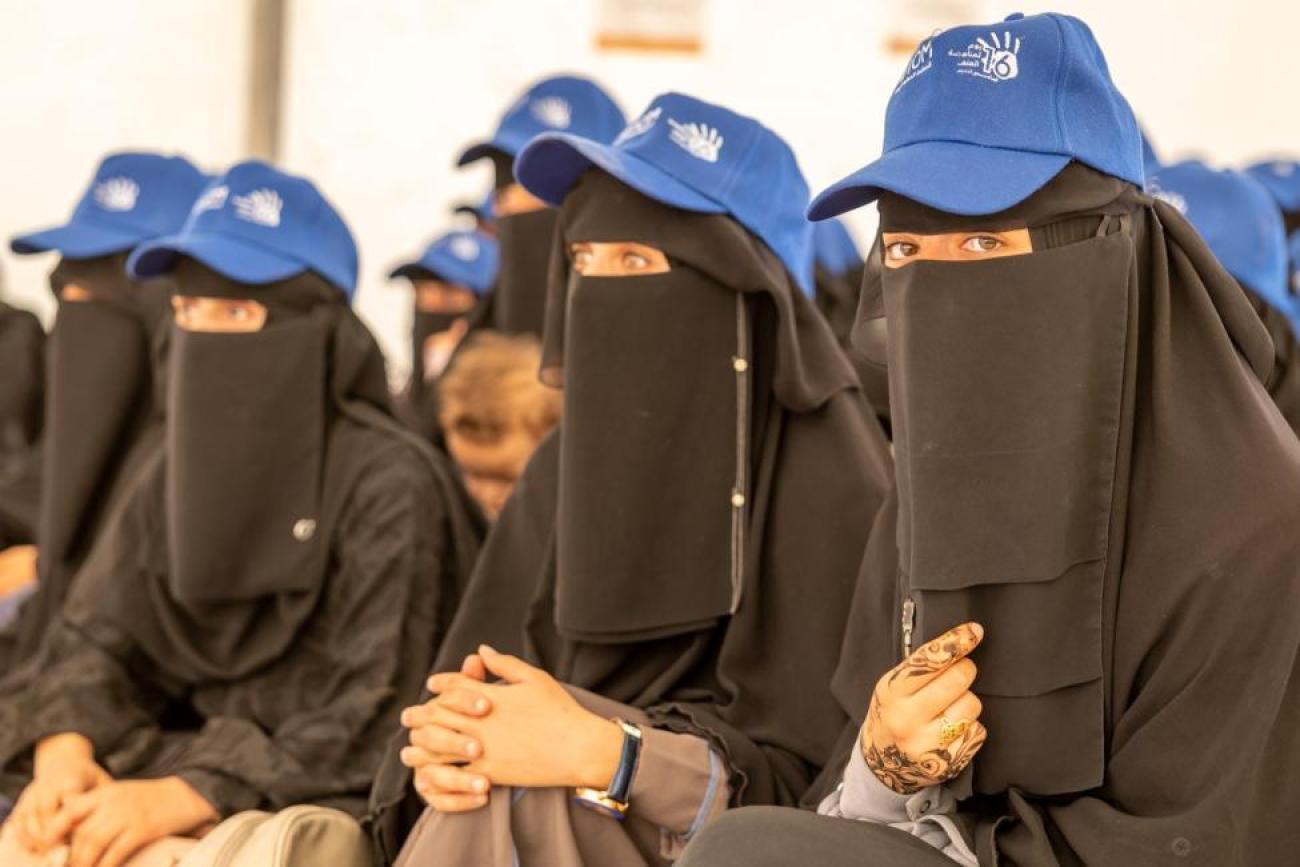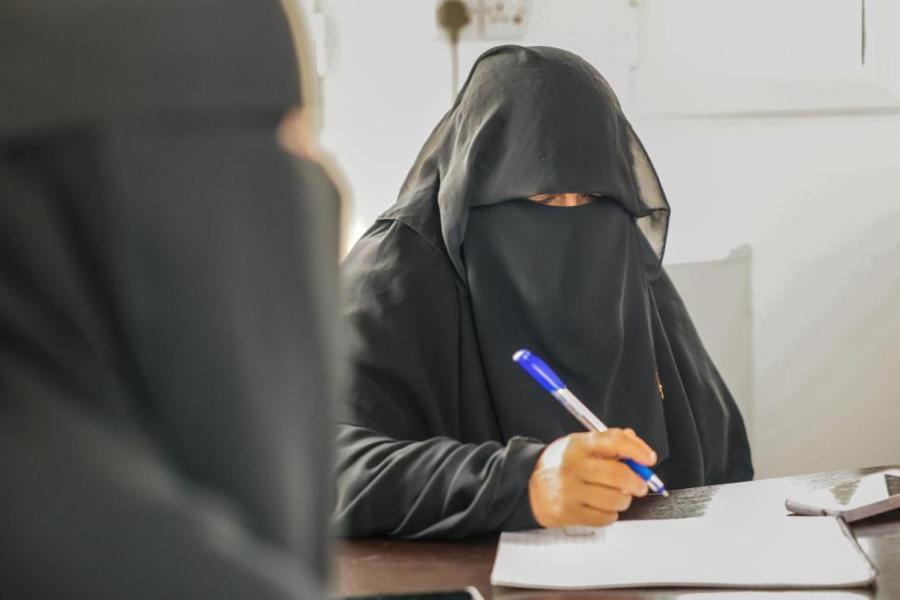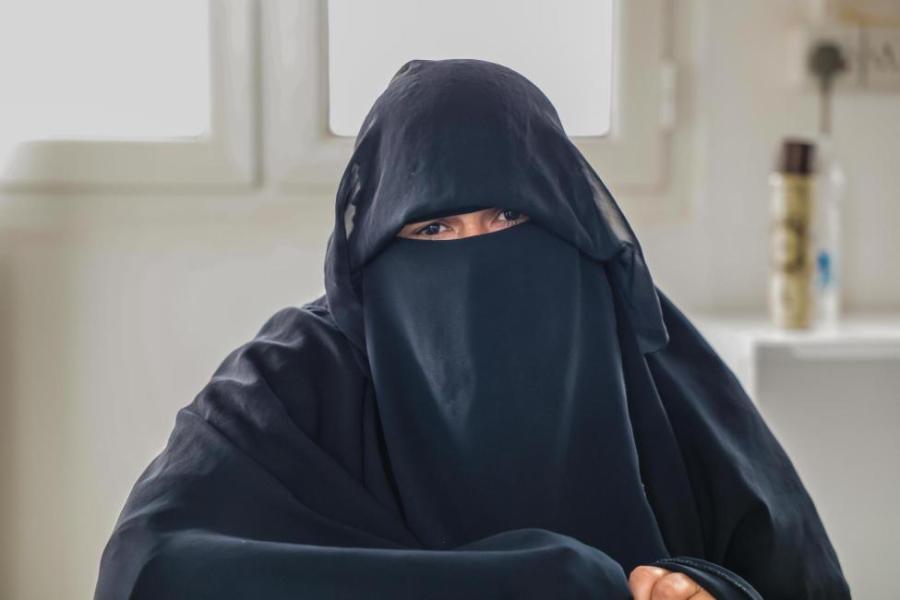DISPLACED WOMEN OPEN NEW DOORS TO GREATER PARTICIPATION AND EMPOWERMENT

Ma’rib – There is no doubt that displacement can be one of the hardest experiences a person can endure.
This is especially true for displaced women who must often take responsibility for starting over, caring for their families and advocating for longer-term peace and stability.
Ahlam*, a 34-year-old mother of four young children, was displaced to Ma'rib nearly seven years ago, leaving behind not only her home but also her freedom and source of accomplishment, her career, until a new opportunity allowed her to find her voice again.
“Since I came to Ma’rib, I have not been able to work or even leave the house. My husband would ban me from going anywhere. After many arguments, I was only allowed to go out three days per week,” explained Ahlam, who used to work as a teacher prior to becoming displaced.
Since she left her home, Ahlam’s life became limited to caring for her family and their shelter. She wanted to work but was unable to secure a job to support her family or to go out to convey her family’s needs to those who could help them.
Her situation recently changed when she heard about a women’s committee being established in Al Jufainah, Yemen’s largest displacement site where she had settled along with 11,000 other families.
Ahlam was excited about the opportunity to volunteer and revive her passion for leadership and supporting other women. She spoke to her family about her wish to be part of the committee and joined after receiving their support.

The International Organization for Migration’s (IOM) Camp Coordination and Camp Management (CCCM) teams have been working for years to improve the living conditions of displaced families in Ma’rib. Given that half of displaced families in this governorate are headed by single women, the Organization knew it needed a forum where women could speak their mind and support each other.
In cooperation with the European Union and the United States’ Bureau of Population, Refugees, and Migration, IOM is launching the Women’s Participation Project which aims to enhance women’s participation in decision making and empowerment in the displaced communities.
As part of the Women’s Participation Project, women’s committees are being opened in 33 displacement sites and numerous trainings are being held on topics like communicating with communities, collecting data and feedback, and leadership skills for more than 180 women.
“I was elected by the Executive Unit for Displaced People Camps Management to lead the Women’s Committee. Our main job is to gather information about the needs, demands and vulnerabilities of women in the displacement sites, and then spread awareness among them,” said Maha, leader of the first women’s committee that started recently in Al Jufainah.
These committees offer a unique forum for women to convey their needs, participate in deciding the type of assistance they receive and support other people in need.
Before this initiative launched, most of the feedback humanitarians received came from men who spent more time out of the house than women and usually neglected to share the specific needs and desires of women.
“Given the cultural restrictions, male humanitarians are unable to go inside the shelters of families headed by women to learn about their vulnerabilities and needs. Since the committee started, women have been able to express themselves to female committee members who come visit them in their homes,” explained Sarah, one of the sector leaders for the Women’s Committee in Al Jufainah.

According to Sarah and her colleagues, women in Ma’rib did not use to have a space where they could gather and form bonds. Each of them lived an isolated life in their shelters and meeting new people was difficult.
Since the committee started, women started to meet, do activities together and hear from each other.
Al Jufainah’s committee now has more than 50 members and includes one committee leader and several sector leaders and community volunteers. They have big dreams for the future of the group.
“One day, we hope to have a dedicated space where we can meet and participate in trainings that will empower women to earn new income-generating skills, somewhere everyone can easily reach and gather,” said Ahlam, who has now become a sector leader.
“If we can help younger generations of girls acquire the skills they need, we know they will find better job opportunities and have a brighter future,” she concluded.
*Some names were changed for protection




